Blue Waters Beach Clean Up
In the last decade, alarming statistics and images have emerged from around the world, highlighting the crucial issue of plastic in our oceans.
Years of neglect have culminated in vast patches of waste drifting around our seas. The largest, the Great Pacific garbage patch, covers an area of approximately 1.6 million square kilometres and is made up of floating trash and debris. It is thought that some of the plastic in the patch is over 50 years old!
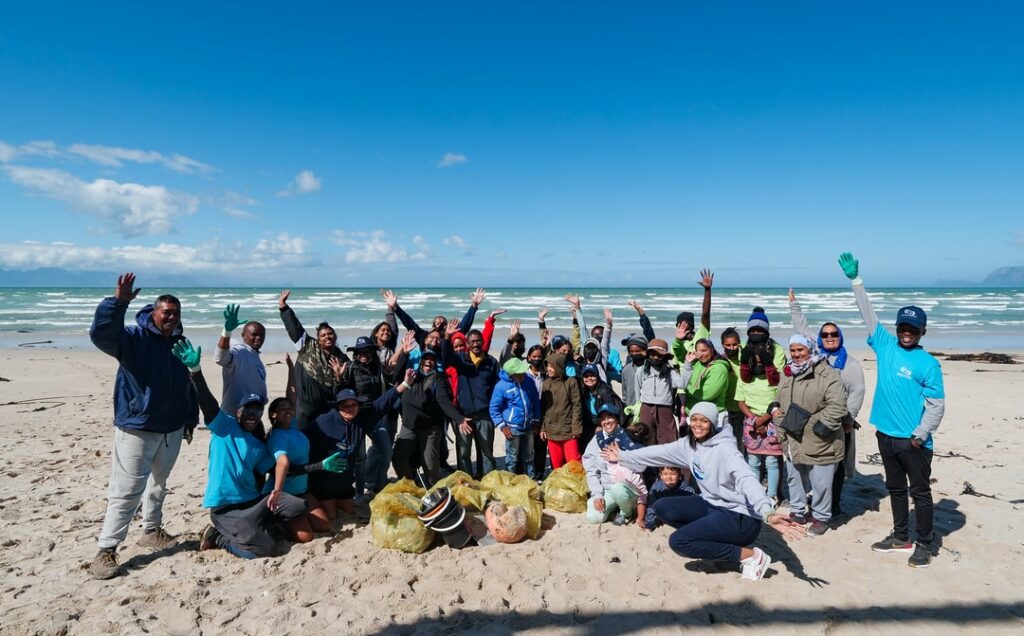
The incredible volunteers that participated at our Blue Waters Beach cleanup in Strandfontein on the 2nd of April. Photo by Danel Wentzel | Save Our Seas Foundation Shark Education Centre
The key solution lies at the root of the problem: our dependence on single-use plastics and other non-recyclable materials in our day-to-day lives. This may seem like a big issue to tackle, but it is not the only way in which we can make a difference.
Here, at the Save Our Seas Foundation Shark Education Centre, we believe that you are never too small to make a difference. One contribution we can make on an individual level is by conducting beach cleanups.
Beach cleanups are a great way to highlight our coastal plastic pollution problem and do something about it. Simply picking up the trash stops it from re-entering the sea, improving the overall health of ocean ecosystems.
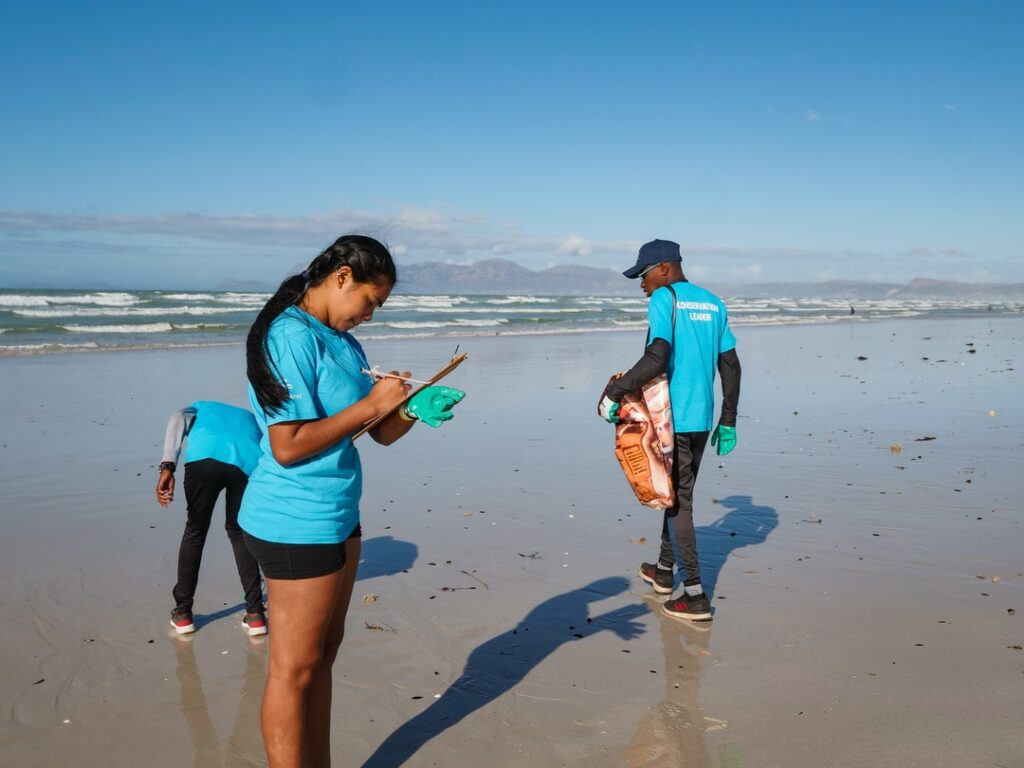
Learners from the Nature Connect Conservation Leadership Programme collected and recorded trash at Blue Waters Beach. Photo by Danel Wentzel | Save Our Seas Foundation Shark Education Centre.
On Saturday the 2nd of April 2022, the SOSFSEC team, along with Dr Koebraa Peters (from the Cape Peninsula University of Technology), hosted a beach cleanup event at Blue Waters Beach in Strandfontein. Dr Peters is the first official Ocean Ambassador for the SOSFSEC and she is already having a big positive impact on the marine environment. The purpose of this event was not only to remove plastic from the beach, which may be harmful to coastal and other marine creatures but also to help build and establish a community initiative with a purpose.
It was on the very shores of Blue Waters Beach where Dr Peters spent her youth frolicking in the waves with her family. Dr Peters told us: “Blue Waters beach holds a special place in my heart. I spent a large part of my childhood there with my dad and siblings. I lost my dad at the age of 10 and all the best memories I have, are of the days spent at the beach. From a young age, I learnt about different marine animals, not as I know them now but the basics, and how important it is for us to protect our oceans. How to recycle, reuse, minimise waste and extract resources from the ocean in a sustainable way was something that my parents taught me without having any tertiary education to teach them all of those things.”
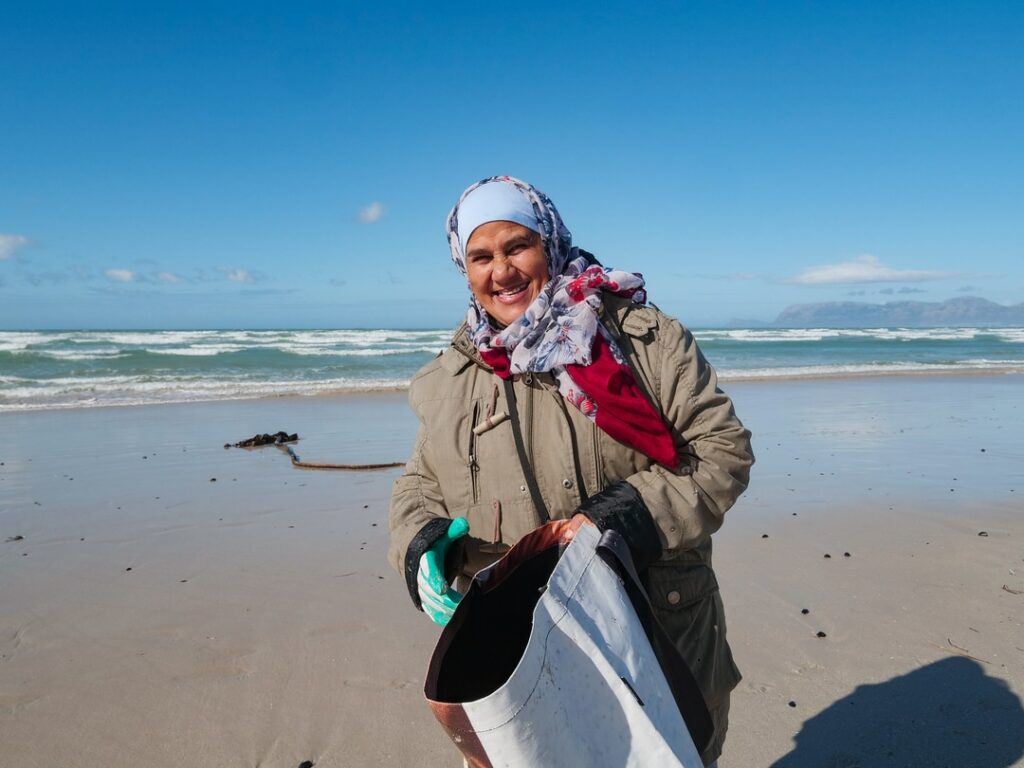
Dr Peters’ mom, Mrs Sakeena Peters, showed her support at the cleanup. Photo by Danel Wentzel | Save Our Seas Foundation Shark Education Centre
Now Dr Peters is determined to bring together other members of the Strandfontein community to help make an impact. The ocean belongs to us all, and it is up to us to protect and care for it. The hope with these beach cleanups is to engage the local community by sharing our ocean passion with them and discussing the threats to this environment, inspiring a sense of ocean guardianship.
According to Dr Peters, there are so many people in the community who are interested and willing to contribute to ocean conservation and eager to learn about the ocean. All they need is someone that they can relate to, that can guide them through it. We are incredibly fortunate to have Dr Peters be that guide and that together with the community that she grew up in, we can learn from one another and at the same time play an active part in reducing the litter load in our oceans.
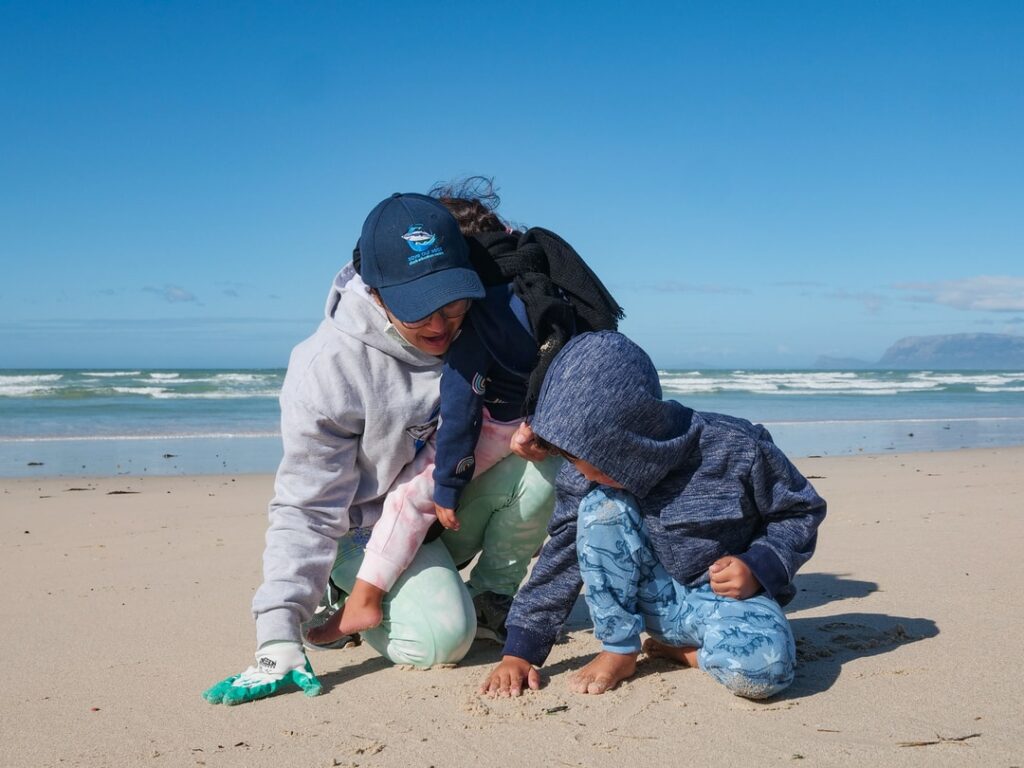
Ocean conservationist and super mom, Dr Peters with her two children led the beach cleanup activities. Photo by Danel Wentzel | Save Our Seas Foundation Shark Education Centre
During this past clean-up, we had 41 participants, some of which included Dr Peters’s mom and two young children who never missed an opportunity to join a clean-up. Over 50 kg of trash was collected with some of the common items, including fishing line, disposable masks, ice lolly sachets, chips packets and lollipop sticks.
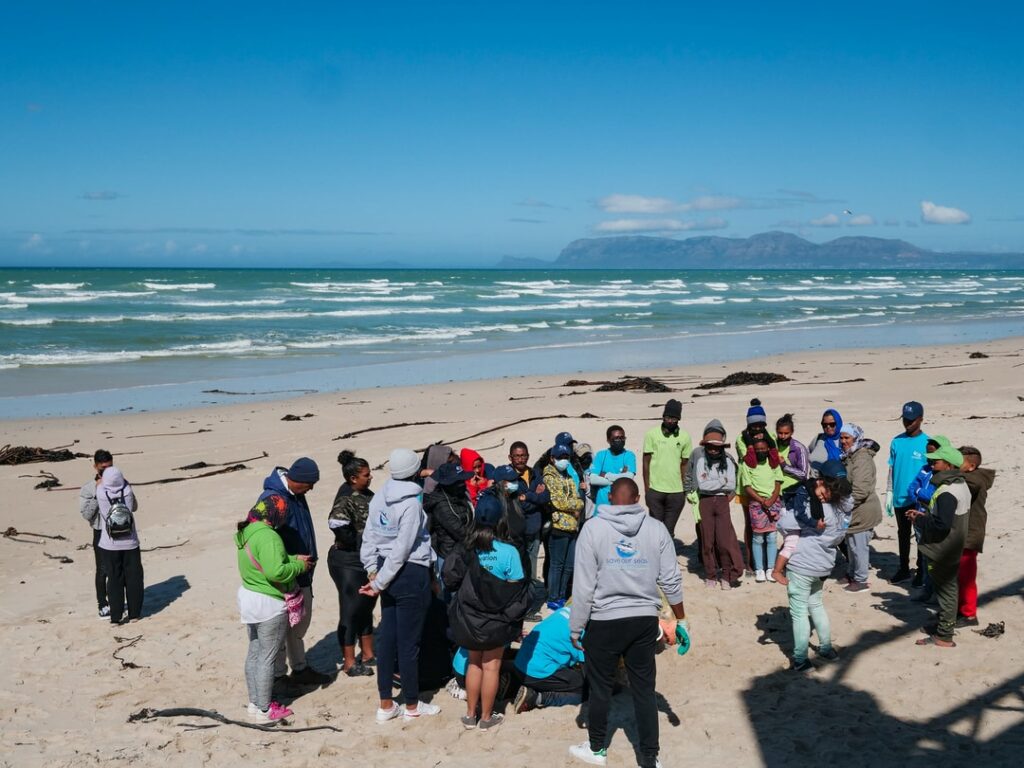
Dr Peters debriefed the volunteers after a successful cleanup. Photo by Danel Wentzel | Save Our Seas Foundation Shark Education Centre.
We hope to grow these cleanups and have more community members (of all ages) join us. We urge the community to come together and learn how to take care of their ocean environment.
